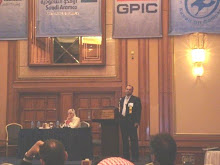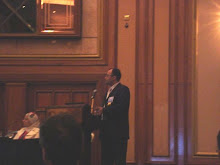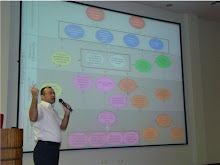Starting with the definition, Knowledge Management includes a variety of practices aiming to identify, establish, represent, store and distribute knowledge that will afterwards be used for performing, awareness and learning within one organization and among different organisations। In many organisations, KM is embedded in IT or HRM (Vail III, 1999)
Organisational maturity varies with different knowledge areas। This reflects on KM by forming a vicious cycle where less maturity means less formalized processes and less organisational learning which in turn decreases organisational ability to improve maturity in that knowledge area. Thus organisations can avoid this by emphasising on capturing knowledge and organisational learning as a baseline.
Of equal importance to capturing knowledge throughout project lifecycle is the knowledge transfer। This starts with on-the-job peer discussions, formal apprenticeship, corporate libraries, professional training and mentoring programs then extends to IT based knowledge bases, expert systems and knowledge repositories.
I see that organisational learning and knowledge management are closely related, where both encounter “using the past to help us predict the future”. However, knowledge management gows a further step ahead of organisational learning by greater focus on specific knowledge assets and the development and cultivation of the channels through which knowledge flows. To promote KM, different organizations have tried various knowledge capture incentives, including making content submission mandatory and incorporating rewards into performance measurement plan.
A strategy to apply KM is to develop processes that enable us to successfully shift from “Tacit” to “Explicit” knowledge. That is, from subconscious internalized knowledge to formal, explicit knowledge that can be stored as an organisational asset and communicated among departments, units and projects (Monaka et al, 1995).
Knowledge Management provides a significant role in assisting PM’s decisions throughout the project phases when mature organisations provide systems, repositories, and corporate processes to encourage and formalize knowledge activities। PM’s access and capture knowledge via the following triple stage process:
First: During initiation and planning, learn best practice and lessons learned from similar projects undertaken earlier
Second: During implementation, tracking and control, to seek advice on issues or roadblocks encountered and how to handle them
Third: During project Closure, to seek advice on post project reviews and activities.
What if there was no previous advice of similar cases in the organisational database? An alternative option PM’s can rely on in KM is to access experts on an ad hoc basis with their knowledge requests। Some advantageous benefits of this option are:
- Experts provide quick, relevant and precise advice,
- They factor in all aspects of the situation and respond accordingly
Regards,
Samer
About The Author

- Eng. Samer el Barakeh, MPM, PMP
- Samer el Barakeh was born in Lebanon, 1973. He completed his Bachelor in Engineering-CCE at Beirut Arab University-Lebanon in 1996 with honours. Samer was granted Masters Degree in Project Management (MPM) from the University of Sydney-Australia with honours. He also gained the Project Management Professional (PMP) Credential from The Project Management Institute (PMI). Samer is a member of the Order of Architects and Engineers in Lebanon since 1996, The Project Management Institute (PMI), Arabian Gulf Chapter (AGC-PMI) and Lebanon Chapter-PMI. During his 13 years of professional experience in Lebanon, Australia and Saudi Arabia, Samer held many positions among them: Telecommunication Site Engineer, Site Manager, Low Current Service Head, and he is currently Senior Systems Analyst at the General Project Construction Division. Samer is a Project Management Consultant and Training Provider for universal organizations like Business Management Consultants (USA) www.bmc-online.com and PMCTQuest (Canada) www.pmctquest.com Samer is a Registered Training Provider for Project Management Professional (PMP), and he provides training in Program Management, Portfolio Management,PMO...
Select a topic to view content
- A comparison between PMBOK and Prince2 Methodologies and reflection on case study examples (1)
- ABC to Avoid Project Failure (1)
- Business Case and Quantitative Benefits (1)
- Do we need more 'Planners' ? (1)
- Fasilitator in Partnering-A Coincise Shot (1)
- How to Ensure Stratgic Alignment of Our Projects? (1)
- Individual Dissimilarity and Team Work (1)
- Knowledge Management (1)
- Maturity Models-The Pros and Cons (1)
- Organizational Advantages from Partnering (1)
- Organizational Maturity: Lets Head Upwards... (1)
- Organizational Strategy and Project Alignement (1)
- Practical Solutions 1 of 6: Introduce RMMM (1)
- Practical Solutions 2 of 6: Facilitate Change to Perk up Maturity (1)
- Practical Solutions 3 of 6: Leverage Organisational Culture Barrier (1)
- Practical Solutions 4 of 6: Organisational Cultural Alignment (1)
- Practical Solutions 5 of 6: Defining a Unified Decision Making Tool (1)
- Practical Solutions 6 of 6: Understanding The Paradox of Control (1)
- Programme Management to Implement Strategy (1)
- Project Management and Construction Management (1)
- Project Managers relocated before Proper Project Closure and Learning Lessons (1)
- Project Managers' Power (1)
- Strategic Planning (1)
- Successful Project Management Office-PMO (1)
- System Thinking: Archetypes at Work... (1)
- The Partnering Change Process (1)
- The Upper Hand… Leadership skills or Processes? (1)
- Thinking about change needed? Maybe you should be more ‘worried’ about how to make it real (1)
- Vision Mission and Objectives What and Why? (1)
- What is meant by Portfolio and Programme Management (1)
- Why Partnering in Organizations? (1)
May 27, 2007
Knowledge Management
Posted by
Eng. Samer el Barakeh, MPM, PMP
at
7:07 PM
1 comments
![]()
![]()
Labels: Knowledge Management
A comparison between PMBOK and Prince2 Methodologies and reflection on case study examples
The PMBOK Guide, “The Guide to the Project Management Body of Knowledge”, was published by The US Project Management Institute (PMI) while Prince2, “Project in Controlled Environment Version2”, was produced by the UK Office of Government Commerce’s (OGC) (Bentley C, 2006; Bailey, 2003). Due to their diversified nature, the comparison process is not fairly applicable: PMBOK is a descriptive knowledge base while Prince2 is a prescriptive methodology. However, they are the most popular alternatives for organisations to espouse; a choice to be based on “comparison” (Bentley, 2006).
A detailed comparison of the two methodologies covers most aspects: Lifecycle, stages, phases, governance, frameworks, Knowledge area based, planning and scheduling ।
These two methodologies are not alone! OPREP, Railcorp-PMM, MSF, Ad-PMM, SPS-PMM, are examples of other methodologies built by organisation according to their needs (PMGP6869, 2003; 4PM, 2006; SPS, 2006). Additionally, a “marriage” is being suggested between PMBOK and Prince2. I tend to agree with this trend basing on the above comparison that showed how knowledge based and comprehensive PMBoK processes complements with perspectives and pragmatic Prince2 nature (Yeong, 2006; Bailey, 2003; Bentley, 2006; Wideman, 2002). Getronics (Bailey, 2003) is an example of successful implementation of combined approach.
Reflecting on some case studies, I suggest adopting PMBoK methodology with four phases in Suncorp Stadium and Youth Club Redevelopment (in my PMGT5872 Final report) characterised by clear end-to-end requirements। However, for ‘A framework to Implementing Strategies’ (Okumus, 2003), I recommend a methodology with stage gate approach as it integrates with feedback loops and selected metrics “health of organisation and enterprise” (El Barakeh et al, 2006) and the “deliberate change iterations” discussed in Question 2A below. Furthermore, projects alignment with strategy can be assessed at these stages as shown in fig.1 below. Therefore, I believe that Prince2 or a combination of Prince2 and PMBoK can be implemented in these cases; otherwise the organisation can build or modify its own methodology (PMGT6869, 2003).

Figure: stage gates to assess alignment with business cases adopted from Seigelaub, 2006
The same applies for ‘Building the Olympic Dream’ (Pitsis et al, 2003) especially due to lack of upfront planning, high exploration, agility requirements, innovative nature, partnership, to name but a few; situations that are not in favour of PMBoK methodology alone.
Finally, it is worth noting that globalisation and acquisition make the combination of the two methodologies more favourable (Bailey, 2003).
Regards,
Samer
Posted by
Eng. Samer el Barakeh, MPM, PMP
at
12:24 AM
1 comments
![]()
![]()
Labels: A comparison between PMBOK and Prince2 Methodologies and reflection on case study examples
















